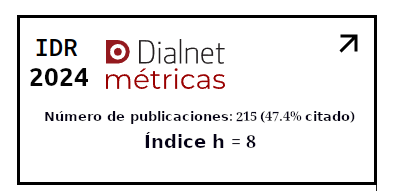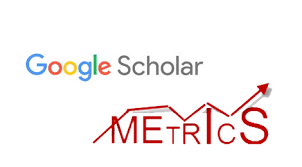Emotional exhaustion from demographic variables in times of pandemic
Keywords:
Emotional exhaustion, occupational health, demographic characteristics, manufacturing industry.Abstract
The COVID-19 pandemic has considerably affected the emotional health of people, in the organizational environment the lives of employees are exposed to situations that affect emotional health. Therefore, this research aimed to analyze if emotional exhaustion is different according to age, education, seniority, position and sector, of the employees who work in the Export Industry of Ciudad Juárez. It was a quantitative, non-experimental, cross-sectional and inferential study, in a sample of 580 employees during the months of April to September 2020, an 8-item instrument was applied. An analysis of variance [ANOVA] was performed and age, education, seniority, position and sector were considered as variables. According to the results, it is revealed that, in the position and age, it was found that there are no significant differences in the job position and age with respect to emotional exhaustion. Not so, statistically significant differences were found in the groups based on work seniority, academic level, and sector. That is, emotional exhaustion varies depending on the time employees have working, the academic level they have, except for those with a postgraduate degree, and the sector in which the subjects work.
Downloads
References
Ángeles López-Cabarcos, M., López-Carballeira, A., y Ferro-Soto, C. (2021). How to moderate emotional exhaustion among public healthcare professionals? European Research on Management and Business Economics, 27(2), 100140. doi: https://doi.org/10.1016/j.iedeen.2020.100140
Asmundson, G. J. G., y Taylor, S. (2020). How health anxiety influences responses to viral outbreaks like COVID-19: What all decision-makers, health authorities, and health care professionals need to know. Journal of Anxiety Disorders, 71, 102211. doi: https://doi.org/10.1016/j.janxdis.2020.102211
Baer, M. D., Dhensa-Kahlon, R. K., Colquitt, J. A., Rodell, J. B., Outlaw, R., y Long, D. M. (2014). Uneasy lies the head that bears the trust: the effects of feeling trusted on emotional exhaustion. Academy of Management Journal, 58(6), 1637-1657. doi: https://doi.org/10.5465/amj.2014.0246
Bakker, A. B., Demerouti, E., y Sanz-Vergel, A. I. (2014). Burnout and work engagement: the JD–R approach. Annual Review of Organizational Psychology and Organizational Behavior, 1(1), 389-411. doi: https://doi.org/10.1146/annurev-orgpsych-031413-091235
Balducci, C., Alessandri, G., Zaniboni, S., Avanzi, L., Borgogni, L., y Fraccaroli, F. (2021). The impact of workaholism on day-level workload and emotional exhaustion, and on longer-term job performance. Work & Stress, 35(1), 6-26. doi: https://doi.org/10.1080/02678373.2020.1735569
Berbeo, A. M. (2018). Caracterización del síndrome de Burnout y estrés laboral crónico en instructores del Centro de Servicios Financieros-SENA. Revista Finnova: Investigacion e Innovacion Financiera y Organizacional, 2(4), 25-34. doi: https://doi.org/10.23850/24629758.1385
Chen, H., y Eyoun, K. (2021). Do mindfulness and perceived organizational support work? Fear of COVID-19 on restaurant frontline employees’ job insecurity and emotional exhaustion. International journal of hospitality management, 94, 102850. doi: https://doi.org/10.1016/j.ijhm.2020.102850
Cullen, W., Gulati, G., y Kelly, B. D. (2020). Mental health in the COVID-19 pandemic. QJM: An International Journal of Medicine, 113(5), 311-312. doi: https://doi.org/10.1093/qjmed/hcaa110
Dong, L., y Bouey, J. (2020). Public mental health crisis during COVID-19 pandemic, China. Emerging infectious diseases, 26(7), 1616-1618. doi: https://doi.org/10.3201/eid2607.200407
Gil-Monte, P. R. (2003). Burnout syndrome: ¿síndrome de quemarse por el trabajo, desgaste profesional, estrés laboral o enfermedad de Tomás? Revista de Psicología del Trabajo y de las Organizaciones, 19(2), 181-197.
Gómez-García, R., Alonso-Sangregorio, M., y Llamazares-Sánchez, M. L. (2019). Burnout in social workers and socio-demographic factors. Journal of Social Work, 20(4), 463-482. doi: https://doi.org/10.1177/1468017319837886
Hair, J. F., Anderson, R. F., Tatham, R. L., y Black, W. C. (1999). Análisis Multivariante (5 ed.). Madrid: Prentice Hall Iberia.
Hernández, R., Fernández, C., y Baptista, P. (2014). Metodología de la investigación (6 ed.). México: McGraw Hill.
Index. (2021). Información estadística: Empleo empresas IMMEX CD., Juárez. Recuperado de https://indexjuarez.com/wp-content/uploads/2021/01/Enero-22.pdf
Khoo, E. J., Aldubai, S., Ganasegeran, K., Lee, B. X., Zakaria, N. A., y Tan, K. K. (2017). Emotional exhaustion is associated with work related stressors: a cross-sectional multicenter study in Malaysian public hospitals. Archivos Argentinos de Pediatria, 115(3), 212-219. doi: https://doi.org/10.5546/aap.2017.eng.212
Kung, Y.-T., Chi, S.-C., Chen, Y.-C., y Chang, C.-M. (2021). Using residual dynamic structural equation modeling to explore the relationships among employees’ self-reported health, daily positive mood, and daily emotional exhaustion. Healthcare, 9(1). doi: https://doi.org/10.3390/healthcare9010093
Lévy, J. P., y Varela, J. (2008). Análisis multivariable para las ciencias sociales. Madrid: Pearson Educación.
Liu, E., y Roloff, M. E. (2015). Exhausting silence: Emotional costs of withholding complaints. Negotiation and Conflict Management Research, 8(1), 25-40. doi: https://doi.org/10.1111/ncmr.12043
Marinković, N., Mirković, B., y Zečević, I. (2019). The relation between socio-demographic characteristics and burnout of primary school teachers. International Thematic Proceedia, 35-51. doi: https://doi.org/10.46630/dpp.2020
Maslach, C. (1998). A multidimensional theory of burnout. In C. Cooper (Ed.), Theories of organizational stress (Oxford ed., pp. 68-85). Reino Unido: Oxford.
Maslach, C. (2009). Comprendiendo el burnout. Ciencia y trabajo, 11(32), 37-43.
Maslach, C., & Jackson, S. E. (1981). The measurement of experienced burnout. Journal of Organizational Behavior, 2(2), 99-113. doi: https://doi.org/10.1002/job.4030020205
Maslach, C., Jackson, S. E., Leiter, M. P., Schaufeli, W. B., y Schwab, R. L. (1986). Maslach burnout inventory (3 ed.). California: Consulting psychologists press Palo Alto, CA.
Maslach, C., y Leiter, M. P. (2016). Understanding the burnout experience: recent research and its implications for psychiatry. World Psychiatry, 15(2), 103-111. doi: https://doi.org/10.1002/wps.20311
Maslach, C., Schaufeli, W. B., y Leiter, M. P. (2001). Job burnout. Annual review of psychology, 52(1), 397-422. doi: https://doi.org/10.1146/annurev.psych.52.1.397
Ozkula, G., y Durukan, E. (2017). Burnout syndrome among physicians: the role of socio-demographic characteristics. Dusunen Adam The Journal of Psychiatry and Neurological Sciences, 30, 136-144. doi: https://doi.org/10.5350/DAJPN2017300207
Pfefferbaum, B., y North, C. S. (2020). Mental health and the covid-19 pandemic. New England Journal of Medicine, 383(6), 510-512. doi: https://doi.org/10.1056/NEJMp2008017
Taris, T. W. (2006). Is there a relationship between burnout and objective performance? A critical review of 16 studies. Work & Stress, 20(4), 316-334. doi: https://doi.org/10.1080/02678370601065893
Tull, M. T., Edmonds, K. A., Scamaldo, K. M., Richmond, J. R., Rose, J. P., y Gratz, K. L. (2020). Psychological outcomes associated with stay-at-home orders and the perceived impact of COVID-19 on daily life. Psychiatry Research, 289, 113098. doi: https://doi.org/10.1016/j.psychres.2020.113098
WHO. (2020). Coronavirus disease (COVID-19) Recuperado de https://www.who.int/docs/default-source/coronaviruse/situation-reports/20200907-weekly-epi-update-4.pdf?sfvrsn=f5f607ee_2
Xiong, J., Lipsitz, O., Nasri, F., Lui, L. M. W., Gill, H., Phan, L., . . . McIntyre, R. S. (2020). Impact of COVID-19 pandemic on mental health in the general population: A systematic review. Journal of Affective Disorders, 277, 55-64. doi: https://doi.org/10.1016/j.jad.2020.08.001
Published
How to Cite
Issue
Section
License
Copyright (c) 2021 ACADEMO Revista de Investigación en Ciencias Sociales y Humanidades

This work is licensed under a Creative Commons Attribution 4.0 International License.








